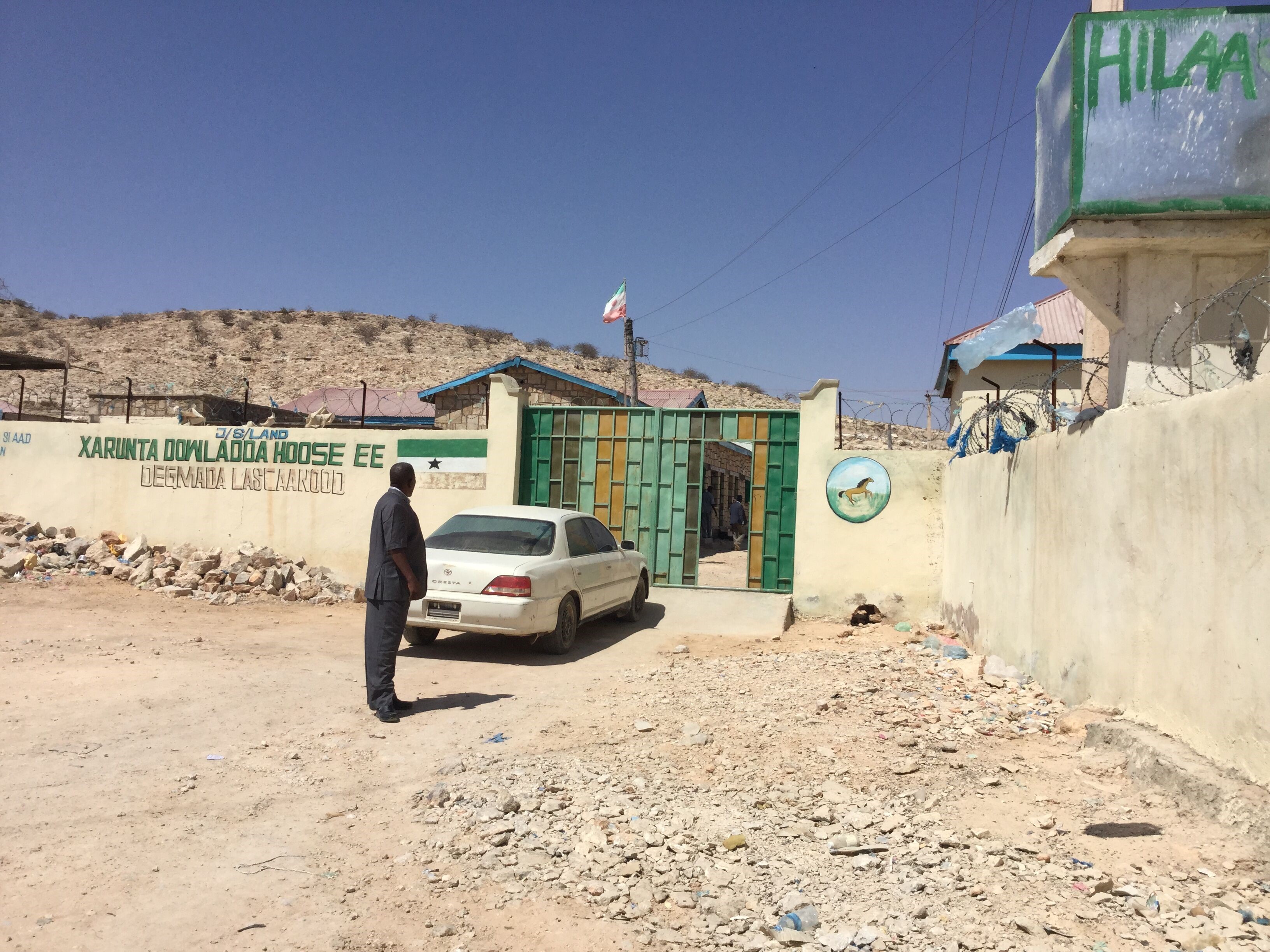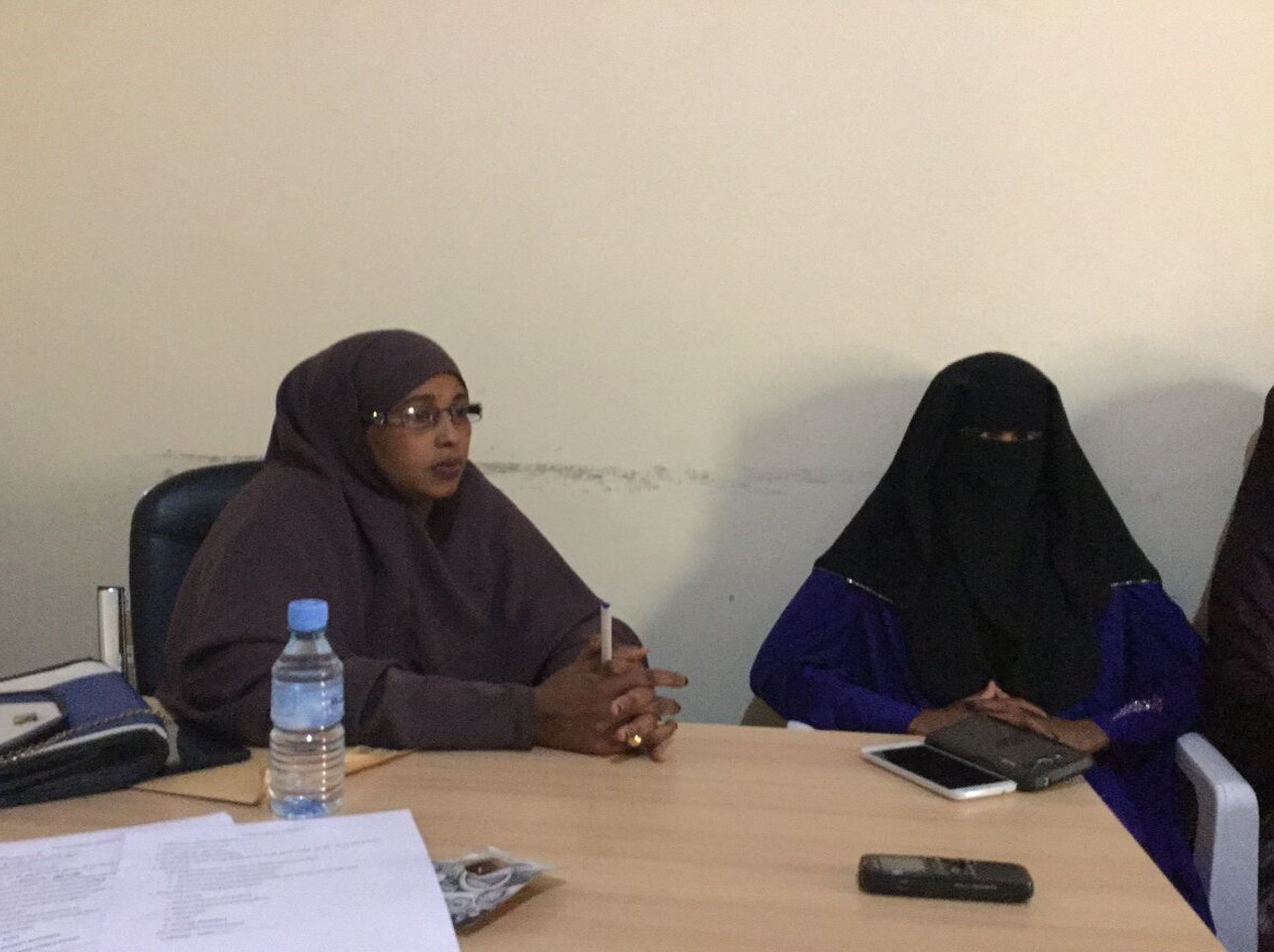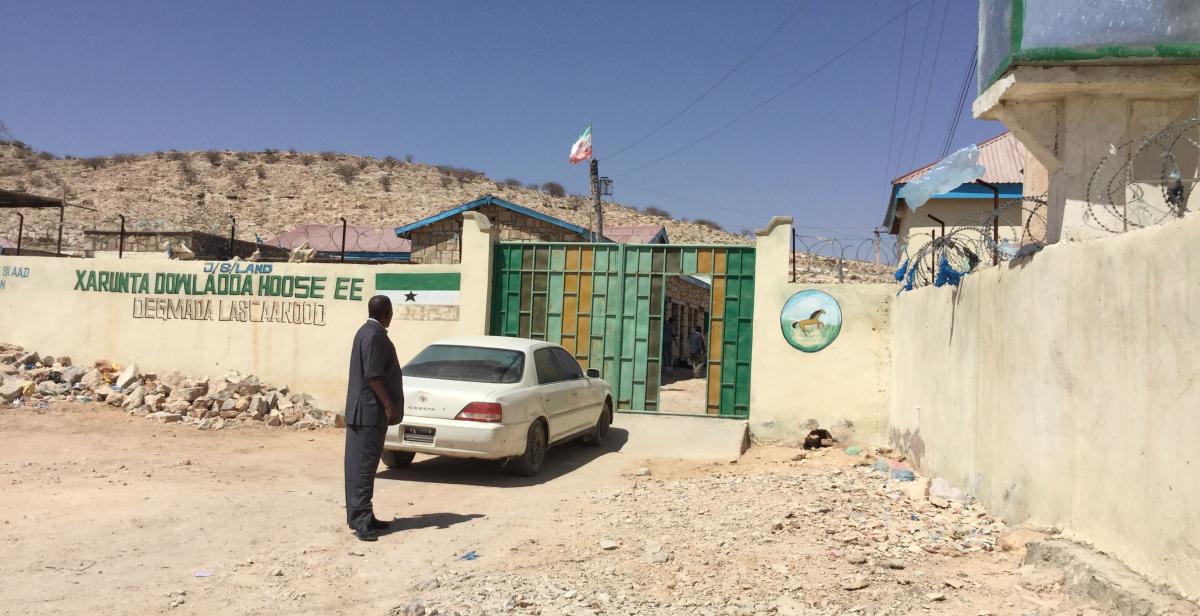Only the sky is the limit - Reflections on research opportunities and limitations, Part 2.
Malou Schueller is the Co-Investigator in the research on ‘Political Settlement in Somaliland – A Gendered Perspective’ and works as Governance Policy and Advocacy Officer for Progressio. In this blog ‘Only the sky is the limit, Part 2’ she shares her recent experience of the research team’s visit to conduct interviews to a remote area in Somaliland. To read ‘Only the sky is the limit, Part 1’ click here.
For more information on the research, please visit this website.
January 2016: Laas Caanood is the capital of Sool, a relatively underdeveloped and remote region, where people feel a bit forgotten about by the central government based in the capital Hargeysa. The National Women's Rights Umbrella Organisation NAGAAD has one of its four regional offices here. It is NAGAAD who have organised two groups of women, men and local government officials to come and talk to us in their offices. Later, in the Local Government office, we also speak to some of the local councillors.

The conversation is frank and open. The women who were interested in coming to the interview seem eager for change. They talk about how 'culture' is often evoked to justify how women and men should behave, even more so than religion. Though, it is hard to disentangle social from religious norms in this context; both seem to permeate every aspect of life, with culture often being mistaken for religion.
Aware of what a huge role culture plays, the women say there are different interpretations of religion - which, of course, depend on culture. When asked where culture comes from, they unanimously agree that "it comes from the men's side, our great great grandfathers made it and if women don't do anything it will continue like this."
Culture always seems to be used by those defending the status quo as an excuse to keep things the way they are.
They also talk about discrimination. The way it works is subtle, often only perceived by those who experience it or have awareness of it. We later interview a young male councillor in the local council of Laas Caanood, who is adamant that there is no discrimination against women in the Council and everyone is equal: "Women can bring forward any issue they like, and we all make the decisions together." But in the council of around 60 staff, only 10 are women. Two of these are in administrative positions, eight are cleaners. Two out of the 20 councillors are female, and one of these has left for Europe.
The only female councillor left says there is a lot of discrimination. The men would only allow her to be on the waste disposal committee, and she is not allowed on any of the committees that are perceived to be doing more serious "man's" work, such as finance or security. This is confirmed by the male councillor who states that women are "good at waste disposal", though he thinks that the fact that a woman is on that committee means they are equals.
The women's group agrees on many areas - one important area they agree on is that the way girls and boys are brought up is critical to how they behave later in life. And that they also have a big responsibility in this process. If one is given a doll and the other a gun, it is not surprising that they will see their perceived gender roles as caring mothers and combatants. They say "boys also like playing with dolls, but we take them away from them" (to make the boy into a man).

When asked what areas they would most like to see change in, they say:"We want to see women in key positions in politics, like a woman governor, or mayor. Water is a big problem in Laas Caanood (a very dry area), if there was a woman top decision maker a lot would have been done to address this issue. Providing water for the household is women's responsibility, so men are not too bothered to address this. They are not doing a good job, there is corruption."
They also want to see men doing domestic work, but social pressure is strong: "If a man is doing housework everyone will say he is a fool, controlled by a woman."
Interestingly enough, in the restaurant where we eat at Laas Caanood, only men are in the kitchen, cooking. Men cook where there is money to be made, but it's mainly women who cook at home, for free.
This is only a small part of our research. As we progress, we need to go much deeper into some of the wider issues that determine gender and the political settlement. Key questions we need to grapple with before we can move into how change could happen for a more inclusive political settlement to take shape, are:
- Why and how is clan important (and is this different for men and women?); why has it become more rigid since the war, driving conservatism in gender terms, impacting negatively on women’s political participation?
- If one of the reasons why clan is so important is that it provides the only comprehensive social protection at present, could a shift to state-provision of social protection help to open political space for increasingly (financially) autonomous women?
- Why has religion become more conservative since the war, further restricting space for women's political participation? How could room be found for a more inclusive narrative?
- How can donors and NGOs support more inclusive change without this being perceived to be external, Western and Anti-Somali?
And finally, in terms of talking to those usually marginalised from research processes, all is not lost. The local research team is now committed to visit some remote rural communities over the next six months before we come back again to take stock.
Somaliland remains an internationally unrecognised state. Since it declared itself unilaterally independent of Somalia in 1991, it has been making remarkable strides towards democracy, providing peace, stability and democracy in a region where all are scarce. However, as Malou explains, there is still a vast amount of work to be done when it comes to inclusive governance and real democracy that recognises and involves women as equals not only at the ballot box, but also in political decision-making. Read about Progressio's work in Somaliland here.



